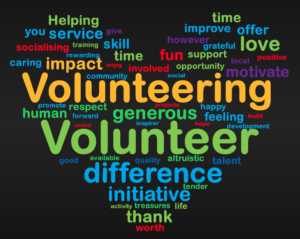 In the world of altruism, volunteers emerge as radiant beacons of hope, generously dedicating their time, talents, resources, and compassion to noble causes. Nowhere does this spirit shine brighter than in the field of animal welfare. From providing enrichment and socialization to offering administrative assistance and fundraising support, volunteers play a pivotal role in the success and impact of animal shelters. As someone deeply passionate about the welfare of animals, I believe that volunteer engagement is not only vital, it is transformative, enriching the lives of shelter animals and fostering a sense of community and purpose among volunteers. Continue reading “The Power of Volunteer Engagement”
In the world of altruism, volunteers emerge as radiant beacons of hope, generously dedicating their time, talents, resources, and compassion to noble causes. Nowhere does this spirit shine brighter than in the field of animal welfare. From providing enrichment and socialization to offering administrative assistance and fundraising support, volunteers play a pivotal role in the success and impact of animal shelters. As someone deeply passionate about the welfare of animals, I believe that volunteer engagement is not only vital, it is transformative, enriching the lives of shelter animals and fostering a sense of community and purpose among volunteers. Continue reading “The Power of Volunteer Engagement”
Unleashing Hope: Building Thriving Foster Care Networks
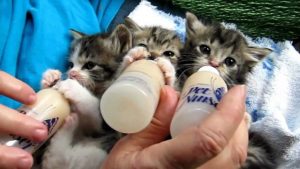 In the realm of animal welfare, few strategies possess the transformative potential and cost-effectiveness of foster programs for under-budgeted and short-staffed shelters. Foster care networks, when cultivated strategically and with community engagement at the forefront, have the power to alleviate overcrowding, reduce stress on shelter animals, and amplify the impact of shelters in their mission to save lives. Let’s explore the nuances of establishing and expanding foster care networks, unlocking their potential to become a cornerstone of compassionate animal care. Continue reading “Unleashing Hope: Building Thriving Foster Care Networks”
In the realm of animal welfare, few strategies possess the transformative potential and cost-effectiveness of foster programs for under-budgeted and short-staffed shelters. Foster care networks, when cultivated strategically and with community engagement at the forefront, have the power to alleviate overcrowding, reduce stress on shelter animals, and amplify the impact of shelters in their mission to save lives. Let’s explore the nuances of establishing and expanding foster care networks, unlocking their potential to become a cornerstone of compassionate animal care. Continue reading “Unleashing Hope: Building Thriving Foster Care Networks”
The Compassionate Path: A Journey to a Well-Balanced Life
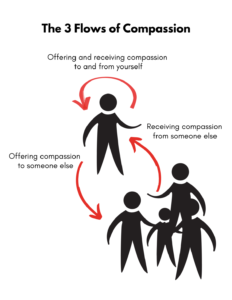 In a world often dominated by hustle, competition, and the pursuit of success, it’s easy to lose sight of what truly matters. As someone who has spent a considerable portion of my life dedicated to animal welfare and community building, I’ve come to believe that compassion is not just a virtue but a guiding principle that can lead us to a more well-balanced and fulfilling existence. Continue reading “The Compassionate Path: A Journey to a Well-Balanced Life”
In a world often dominated by hustle, competition, and the pursuit of success, it’s easy to lose sight of what truly matters. As someone who has spent a considerable portion of my life dedicated to animal welfare and community building, I’ve come to believe that compassion is not just a virtue but a guiding principle that can lead us to a more well-balanced and fulfilling existence. Continue reading “The Compassionate Path: A Journey to a Well-Balanced Life”
Think Globally, Give Locally – Especially True for Animal Welfare
 Imagine how you would feel if your boss told you he was so happy with your work that he was going to give a bonus to your coworker. I suspect you would be dumbfounded. Yet, in my line of work, it is not uncommon to hear, “I really love the work my local humane society or spca does – so I sent a donation to the Humane Society of the United States (HSUS) or to the ASPCA (American Society for the Prevention of Cruelty to Animals) to help support you.”
Imagine how you would feel if your boss told you he was so happy with your work that he was going to give a bonus to your coworker. I suspect you would be dumbfounded. Yet, in my line of work, it is not uncommon to hear, “I really love the work my local humane society or spca does – so I sent a donation to the Humane Society of the United States (HSUS) or to the ASPCA (American Society for the Prevention of Cruelty to Animals) to help support you.”
One of the greatest misunderstandings and biggest challenge local animal welfare organizations face is the belief most people have that HSUS and the ASPCA are affiliated with local animal welfare organizations.
Do you know how much funding HSUS and the ASPCA gave your local humane society or spca? If you said “nothing,” you’re likely correct – and this is true for virtually every local animal welfare organization in the United States.
Ironically, HSUS and the ASPCA raise enough money each year to fund an animal shelter in every state. However, HSUS has no animal shelter anywhere, and the ASPCA has just one shelter in New York City – that actually handles fewer animals each year than most small local humane societies or spca’s across the nation.
The mission of the national organizations is to raise awareness of national animal welfare issues; the mission of local humane societies and spca’s is to actually care for the homeless, abused and neglected pets in their local communities.
Many mistakenly believe their gifts to national groups will trickle down to help animals in their own community. I only wish that were true.
People come to this assumption through misleading marketing tactics. Let me give you an example. I once received an ASPCA direct mail solicitation that was also sent to millions of homes across the nation. The solicitation said, “Together we can stop cruelty to animals. … As you read this letter, somewhere – perhaps not far from you – someone is inflicting pain on an innocent and helpless animal. … You may not be able to rescue that particular animal. … Please send the largest gift you can manage to help the ASPCA save animals like it.”
Clearly, the ASPCA understands that sending “the largest gift you can manage” to their New York office is not the best way to help protect “an innocent and helpless animal,” a “particular animal,” an animal “not far” from where you live.
I have no objection to national animal welfare organizations asking for support for the important work they do. However, I do object to misrepresenting their programs by implying they are helping animals in every community in the nation. This is especially disturbing as you watch the daily barrage of heart-wrenching television ads national organizations use to seek donations.
I believe the maxim “think globally; act locally.” However, I object to national organizations abusing this tenet by suggesting you are acting locally when you contribute to them. Don’t be fooled. When you contribute to these organizations, your money is leaving your community never to return. If that is your intent, fine, but be sure you understand that.
Every local humane society/spca in every city, town and county, was founded to help homeless, abused and neglected animals in their own community. Local humane societies are often governed by a local volunteer board of directors and are funded almost entirely by local support.
Most local humane societies and spca’s receive no funding from the national groups, nor are they governed by or affiliated with them. Local humane societies and spca’s are often the largest local nonprofit 501(c)(3) charitable organization caring for the largest number of needy animals in their community – and these animals need our help. They need your help.
If you are looking for the best way to help homeless, abandoned and abused animals in your community, volunteer with your local shelter or make a life-saving tax-deductible donation directly to your local humane society, spca or animal rescue.
For more on this, click here: ASPCA spending may not be what donors expect.
Did you save a life today? by Ed Boks

How often do you get to say, “I saved a life today?” When you volunteer with the your local animal shelter that assertion can be a daily affirmation. That is especially true when you volunteer as a foster caregiver. Every animal fostered back to health or to an adoptable status is a life saved. The ability of a local animal shelter to care for all the animals rescued depends on reliable foster volunteers willing and able to help. The more foster volunteers, the more lives saved.
Foster volunteers are typically caring people who do everything from bottle-feeding orphaned neonate babies around the clock to socializing little ones to ensure they are able to interact with both humans and animals to caring for an older animal recovery from an injury or surgery. Foster volunteers provide care, safety and love. Continue reading “Did you save a life today? by Ed Boks”
Good news from IRS to volunteers by Ed Boks

One of the best kept secrets to being an animal shelter volunteer is a 2011 U.S. Tax Court ruling. The ruling brought some much-needed clarity to deducting unreimbursed expenses incurred by volunteers helping IRS-recognized charities like your local animal shelter or animal rescue organization.
The case involved Jan Van Dusen, who appeared before a U.S. Tax Court judge and a team of IRS lawyers regarding a tax deduction for taking care of 70 stray cats. Continue reading “Good news from IRS to volunteers by Ed Boks”
What to do when you find newborn kittens by Ed Boks
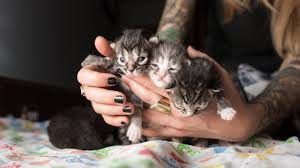
Each spring local animal shelters receive many kittens too young to survive more than an hour or two without a mother. These kittens are called “neonates.” Sadly, most of the neonate kittens that shelters take in are orphans. People find these babies in their garage, barn, flowerbeds and many other places where the mother felt safe from predators and intruders while she gave birth.
Understandably, some people feel they are helping neonate kittens when they bring them to an animal shelter. Actually, they are putting these little lives at tremendous risk because euthanasia may be the only way a shelter can save them from suffering an agonizing death by starvation.
To avoid such a horrible fate, I recommend you leave neonate kittens where you found them; they are not abandoned – and momma cat is their best guarantee of survival. Continue reading “What to do when you find newborn kittens by Ed Boks”
Benefits to exercising with your four-legged best friend by Ed Boks

Are you having trouble sticking to your new year’s resolution to exercise more? Maybe you need a good physical trainer to help meet your fitness goals. Have you considered your best friend? Research shows that dogs are actually nature’s perfect personal trainers. Dogs are naturally loyal, hardworking, energetic and enthusiastic…basically the perfect work-out partner. And, unlike human workout partners who may skip an exercise session because of appointments, extra chores or bad weather, dogs never give you an excuse to skip exercising.
Many people don’t realize that taking your dog out for a walk at least two times a day can create significant benefits for both themselves and their four-footed friend. According to a number of recent studies conducted by the Centers for Disease Control, the American College of Sports Medicine, the American Geriatrics Society and others: Continue reading “Benefits to exercising with your four-legged best friend by Ed Boks”
FIV-positive cats can lead long, healthy lives by Ed Boks

In the quest to achieve No-Kill (applying the same criteria a loving pet guardian or conscientious veterinarian would apply when deciding a shelter animal’s fate), one of the challenges we must overcome is the widespread belief in many myths regarding shelter animals.
The fact is some shelter animals have issues. Equally true is the fact that these issues are seldom the animal’s fault and they can almost always be resolved. Knowingly adopting an animal with special needs is one of the noblest acts you will ever perform; you are truly saving a life.
Let me give you an example of a myth responsible for unnecessarily killing far too many animals: “cats infected with Feline Immunodeficiency Virus (FIV) should be euthanized.” The truth is FIV cats often live long, healthy lives with no symptoms at all.
FIV is an endemic disease found in domestic cats worldwide; it is a lentivirus, meaning it progresses slowly, gradually affecting a cat’s immune system. Cats are typically infected through a serious bite, usually inflicted by a stray male cat – earning it the moniker the “fighting cat” disease (a good reason for keeping your cat indoors).
The most well-known lentivirus in humans is HIV – but there are major differences between FIV and HIV. HIV cannot infect cats and FIV cannot infect humans – in fact, there is no evidence that FIV has ever infected a human in the 6,000 years humans and cats have lived together.
The fear concerning FIV cats came to my attention recently when my shelter rescued a loving 3-year-old American shorthair named Pushkin. Pushkin was surrendered by a family not because of his disease, but because they were moving out of state and sadly could not afford to take him along. Pushkin is so sweet that my team fell in love with him and tried earnestly to find him a new home. However, when potential adopters learn Pushkin has FIV, they immediately lose interest in him.
Being the proud guardian of an FIV cat named Oliver who lives happily with my other cat, Beau Bentley, I am distressed by the apprehension I find among so many cat lovers regarding FIV.
As long as FIV cats are not exposed to diseases their immune system can’t handle, they can live relatively normal lives. When kept indoors, as all cats should, health risks are significantly reduced. FIV is not easily passed between cats either. It cannot be spread casually – in litter boxes, water or food bowls, or when snuggling and playing. It requires a serious bite to transmit the disease.
Before we knew FIV existed, shelters routinely placed these cats into loving homes where they often lived long, normal lives. With the discovery of FIV in 1986 came an undeserved stigma that has since made placing them unduly difficult.
Dr. Susan Cotter, professor of hematology and oncology at Tufts University School of Veterinary Medicine, is helping counteract these misinformed fears. “I would not advise getting rid of a cat that tests positive for FIV,” she says. “If the cat is young and healthy, it could be years before anything changes.”
Best Friends Animal Society veterinarian Dr. Virginia Clemans says “the one important thing is to keep your FIV cat healthy.”
That, of course, is good advice for all cats. In fact, the very advice we offer FIV cat owners is equally appropriate for all cats. That is, all cats should be kept as healthy as possible; kept indoors and free from stress; fed a high-quality diet; and medical problems should be treated as soon as they arise.
If you already own a cat, ask your veterinarian about early detection to help maintain your cat’s health and to help prevent the spread of this infection to other cats.
Although many FIV cats live long, happy lives, some may need periodic medical care or ongoing medical management. This is why adopting a special-needs animal is such a noble and selfless act. If you can find the room in your heart and home for a cat like Pushkin, please contact your local shelter – because every animal counts.
Calling all fosters by Ed Boks
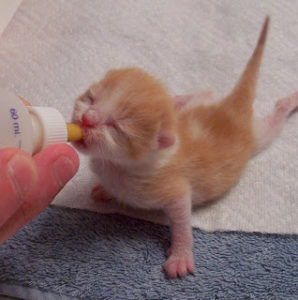 There is a fundamental tenet held among most animal welfare and animal rights advocates that we accept as incontrovertible. That precept was perhaps best articulated by Mahatma Gandhi when he said, “the greatness of a nation and its moral progress is best judged by how we treat our animals”. This principle expresses the belief that when a community is compassionate enough to care about the needs of its animals there can be a reasonable expectation that the bar is raised on how we care and treat one another.
There is a fundamental tenet held among most animal welfare and animal rights advocates that we accept as incontrovertible. That precept was perhaps best articulated by Mahatma Gandhi when he said, “the greatness of a nation and its moral progress is best judged by how we treat our animals”. This principle expresses the belief that when a community is compassionate enough to care about the needs of its animals there can be a reasonable expectation that the bar is raised on how we care and treat one another.
The reverse is also true. If we can dismiss the needs of our animals it becomes easier to dismiss the needs of our infirmed, aged, and needy human populations. Caring about animals serves as the ultimate litmus test for determining a community’s capacity for compassion.
This test is applied to the City of Los Angeles every day, but never more than in the spring and summer months.
Spring is the beginning of kitten season in Los Angeles. In 2008 LA Animal Services took in over 7,300 neonate kittens. Neonate means too young to survive for more than an hour or two without a mother. Sadly, most of the neonate kittens we take in are orphans. People find these babies in their garage, flowerbeds, and many other places where the mother felt safe from predators and intruders while she gave birth. Property owners find these crying babies within hours or days of birth and bring them to our Centers without the mother. Taken away from their mother they have no chance at survival without significant human intervention.
Neonate kittens represent over one-third of all the cats taken in by the Department. They also represent over 35% of all the cats euthanized and over 21% of our euthanasia rate in 2008. One in three cats and one in five animals euthanized in LA is a neonate kitten. On the up side, most of our healthy weaned kittens get adopted. So anything we can do to help our neonates reach full “kittenhood” improves the odds of their eventually finding a loving home.
Kitten season in Los Angeles starts around the end of March and lasts through September when it starts to slowly decline over October and November. That means now is the time for everyone wanting to help end the killing of these innocents to contact LA Animal Services to either volunteer to foster a litter of kittens or to make a donation to help others willing to make this commitment.
The Merriam-Webster Dictionary defines “foster” as providing parental care and nurture to children not related through legal or blood ties. If Gandhi viewed animals in general as the first rung on the compassion ladder then these little creatures must be considered the least of the least. They can be so easily overlooked and forgotten. In fact, California State Law defines “adoptable animals” as only those animals eight weeks of age or older; which means these little orphans have no legal standing in the State of California. They don’t even have to be counted in the City’s no-kill goal. Nonetheless, they are because we understand that our moral progress depends on our providing adequate care and nurture to these living souls with whom we have no legal or blood ties.
The problem is that we can’t save them all by ourselves. We need your help. During kitten season LA Animal Services can take in over 80 neonate orphans a day, over 2500 in some months. Depending on their age they may require four to 8 weeks of intense foster care. Though dozens of our dedicated employees volunteer to foster neonate litters above and beyond their daily duties, the majority will not survive without the additional help of members of the public willing to step up to the challenge. They will not survive without your help. If you are able and willing to help save these lives, LA Animal Services will provide the training, support and supplies you need to be a successful foster parent.
This is a big commitment and a true test of our compassion. Even with our best efforts not all foster babies survive. But they can all be loved. These babies need to be bottle fed every two hours around the clock for several weeks; making this the perfect family, club, or faith based organizational project. Fostering helpless neonates is an ideal way to foster compassion and respect for the true value and sanctity of all life in our community.
Have you saved a life today? Make a commitment to volunteer as a Baby Bottle Foster Parent. Our kittens are hoping you do!
